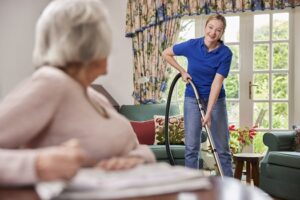Spotlight
Parkinson’s disease involves changes that cause certain parts of the brain to stop producing dopamine. Over time, these changes can lead to symptoms that inhibit the ability to live a normal life. Muscle stiffness, tremors,…
Read MoreWhile age spots, also called liver spots, are usually harmless, most people certainly aren’t happy when they begin to develop. Age spots are the result of prolonged sun exposure that causes melanin deposits in the…
Read MoreAfter being diagnosed with Alzheimer’s disease, seniors should sit down with their family members to begin the process of legal planning. This will give them the opportunity to state their preferences for treatment while they still…
Read MoreAccording to the International Osteoporosis Foundation, nearly 200 million adults live with this pervasive bone disease. While there are a few relatively effective treatments for osteoporosis, seniors must do everything in their power to avoid…
Read MoreBeing able to continue living at home is a big advantage for seniors. They’re happier living in their own residences, taking comfort from their familiar surroundings and the homes they’ve spent their lives building. However,…
Read MoreEveryone has an occasional night when it seems impossible to sleep. However, seniors who have difficulty falling or staying asleep through the night may need help getting the proper amount of rest. Sleep challenges are…
Read MoreWhile there’s no cure for Alzheimer’s, studies have shown eating a healthy diet may reduce symptoms and slow the progression of the disease. Many seniors with Alzheimer’s don’t follow a healthy diet, and some may…
Read MoreThe digestive system works hard every day to efficiently digest foods and make eating a pleasant experience. As people age, changes occur that can affect how an older digestive system functions. Here’s a closer look…
Read MoreBefore your senior loved one gets discharged from the hospital, the nurse or physician will provide discharge instructions. This type of education not only prepares your loved one to go home but may also reduce…
Read MoreMigraines are severe, often recurring, headaches that can seriously limit a senior’s ability to enjoy daily activities. These headaches can be caused by numerous factors and may include any of the following symptoms: Extreme pain…
Read More










